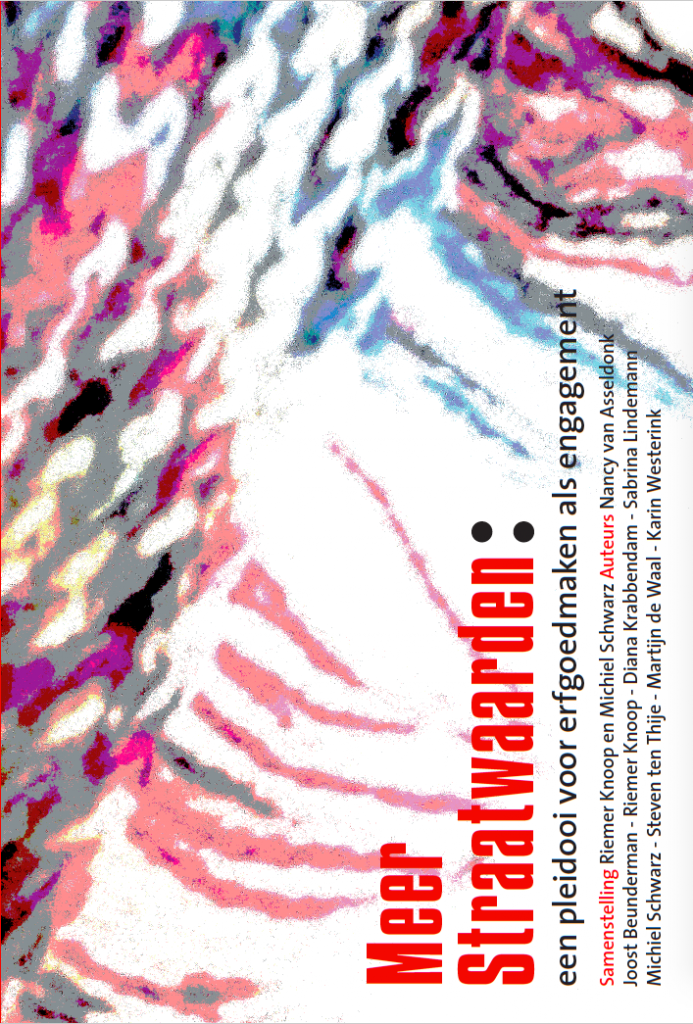The Street Values project studies changing practices of heritage-making in public space, by analyzing examples and conceptual reflections. ‘Our research provides insight in how we view and interpret the so-called socialization of heritage’, says professor and project manager Riemer Knoop. Next to Riemer Knoop and Martijn de Waal, the research team included Michiel Schwarz and Nancy van Asseldonk.
In May 2019, the book More Street Values was presented in Pakhuis de Zwijger.
The book (in Dutch) can be downloaded below
About the research project: Heritage-making & placemaking
We live in a time of bottom-up, participation, diversity and more socially sustainable qualities in our living environment. It is therefore not surprising that the research shows a growing importance of new, sustainable and more participatory practices with respect to heritage and public space. Knoop: ‘Looking at it from a sustainable cultural perspective, the more these practices are socially embedded and provide room for multiple values and participants, the more successful they become.’
The Street Values project looks at heritage as a social design challenge rather than an object or location which should be preserved. It shows how the practice of heritage-making is changing in the living environment. Heritage is becoming more inclusive, more interconnected with social actors and more closely attuned to the values of local communities. This has consequences for how heritage professionals should be educated.
During the second phase of the project three case studies were done at the request of interested parties. These were about:
– the link between the art programming of the Oude Kerk and its surroundings (Amsterdam, Red-Light District)
– the Transferability of the concept of Story House Belvédère (Rotterdam)
– the implementation of the cultural-societal core values of the Binckhorst Area in the transition to a metropolitan residential and working area (The Hague)
The insights from this research were shared with Monuments and Archaeology of the City of Amsterdam and the Cultural Heritage Agency (RCE). They were also used consulting housing corporation Stadgenoot regarding adaptive re-use of a monumental building in Amsterdam North. And master students Public Administration at VU Amsterdam study the new forms of participation which are addressed in Street Values.
Finally, a reference to the the Street Values research in an advice (in Dutch) by the Council for Culture and the Council for the Environment and Infrastructure is an example of the changing attitude and behaviour “ from collection to connection “ the heritage sector needs to manage transitions with respect to climate, energy, demography and governance.



